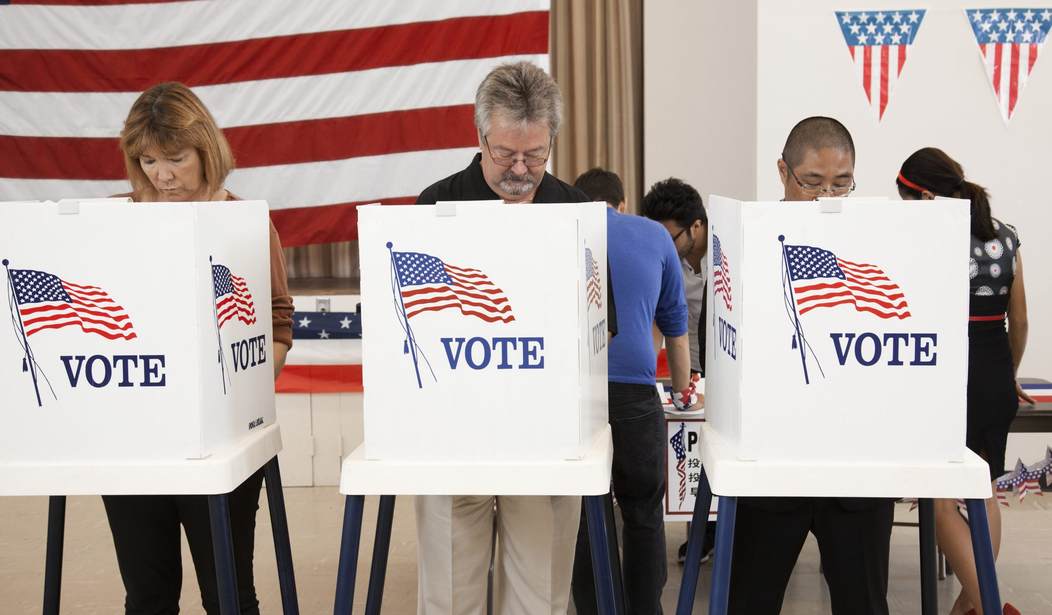It didn’t surprise me when it was reported earlier this week that Boston’s City Council is considering allowing non-citizens with legal status to vote in local elections. Earlier this year, Andrea Campbell, the president of Boston’s City Council, said, “The purpose of our local government, including the Mayor’s Office of Immigrant Advancement, is to strengthen the ability of diverse, cultural, and linguistic communities to play an active role in the economic, civic, social and cultural life of the City of Boston.”
There are nearly 200,000 legal non-citizens in Boston. According to a 2015 city report, “Boston has more than 190,000 foreign-born residents, which represents 28 percent of the city population.” In addition, non-U.S. citizens paid $116 million in state and local taxes and generated over $3.4 billion in spending.
Voting in federal elections by non-citizens is restricted by 18 U.S. Code § 611, but no such restriction exists for local elections. Non-citizen voting is not unprecedented, but many people are (justifiably) not comfortable with it, either.
Boston City Councilor Ed Flynn, for one, does not support allowing non-citizens the right to vote in municipal elections. “The right to vote is a privilege reserved for U.S. citizens. The right to vote is a unique characteristic and privilege reserved for those individuals who have gone through the extensive citizenship application process,” Flynn said.
Local residents are also not comfortable with it:
Some city residents worried about “watering down” what it means to be an American have hit the phones to object to a proposal before the City Council today to allow noncitizens the right to vote in municipal elections, Councilor Michael Flaherty told the Herald.
“I got a lot of calls today from folks who are concerned we are watering down what it means to be a citizen of the United States and have the privilege to vote,” Flaherty said.
The at-large councilor is the chairman of the Committee on Government Operations, which this afternoon will hold a hearing sponsored by Council President Andrea Campbell that will discuss the possibility of allowing noncitizens to vote in municipal elections. More than half of the councilors co-sponsored the hearing, including Josh Zakim, Ayanna Pressley, Michelle Wu, Lydia Edwards, Annissa Essaibi-George, Kim Janey and Ed Flynn.
“These residents that we’re aiming and talking about, are residents who lived in the city for some period of time, who send their kids to school, who run businesses and pay taxes, attend civic organizations,” Campbell said. “The goal is to have a conversation that will have many perspectives, including talking about the risk of doing something like this. … We cannot continue to hold rallies, or pass resolutions against President Trump — we need to do more.”
This action reeks of yet another move by Massachusetts Democrats who seek to change existing laws to meet their short-term political needs.
Back in 2004, when Senator John Kerry was the Democratic nominee for president of the United States, Massachusetts empowered the governor to appoint his replacement if Kerry had won. Republican Mitt Romney was governor at the time, and so the veto-proof Democratic legislature changed the law, stripping the governor of his senatorial appointment power, and establishing that a special election would be held to fill the vacancy.
Kerry lost the presidency, but the law remained on the books… until 2009, when Senator Ted Kennedy, who was dying of brain cancer at the time, actually urged the state legislature to change the law again so that then-governor, Democrat Deval Patrick, could appoint a temporary replacement. Obamacare was being debated in Congress at the time and every single vote in the Senate was crucial. Therefore, a vacant seat in the Senate for several months before a special election could be held might have potentially doomed Obamacare.
Kennedy died shortly after his appeal to the legislature and a bill empowering the governor to appoint a temporary successor was approved a month later. A complete flip-flop from their actions five years prior.
Yet, in 2016, when Elizabeth Warren was considered a potential VP pick for Hillary Clinton, Senate Minority Leader Harry Reid was reportedly “actively reviewing Massachusetts rules for filling a US Senate vacancy” in order to potentially prevent Republican Governor Charlie Baker from being able to name a temporary replacement for Warren. Senator Warren wasn’t picked, however, and they never needed to exploit the loophole they discovered in the law.
The bottom line here is you can’t trust the motivations of Democrats when they want to change the rules. Whether it’s giving non-citizens the right to vote, repeatedly changing senatorial succession laws, or, as another example, when Senate Democrats nuked the filibuster in 2013, the motivation in each case is short-term political goals.
For all the talk about fairness and representation from Boston City Council members about allowing non-citizens the right to vote, the motivation is certainly political, not ethical. Proponents of the proposal are most definitely motivated by their desire to strengthen their hold on power. The anti-Trump symbolism of the measure is just a bonus.










Join the conversation as a VIP Member